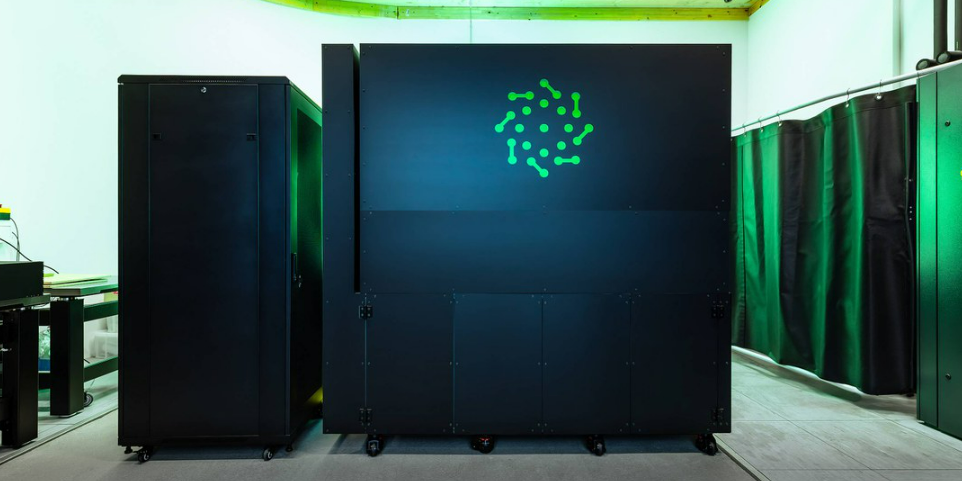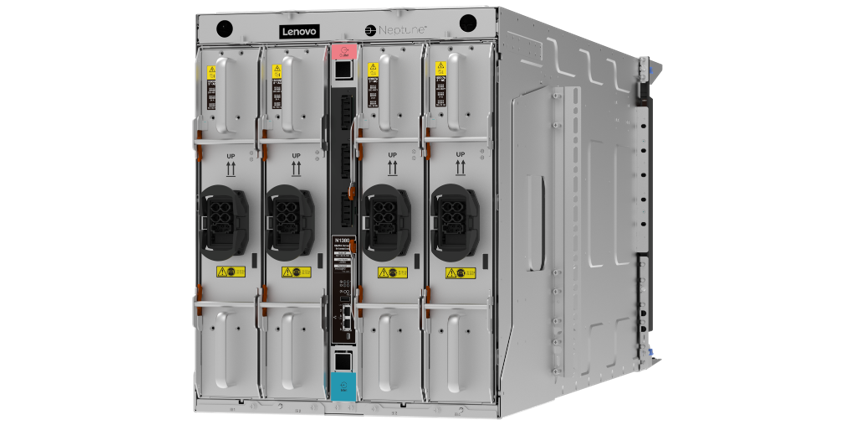Dec. 2, 2024 — The Jülich Supercomputing Centre (JSC) at Forschungszentrum Jülich in Germany received a 100-qubit quantum computer from neutral atom quantum computing company Pasqal in mid-November.
The system is part of the EuroHPC JU project HPCQS and will be coupled with the JURECA DC supercomputer at JSC. This will enable European researchers to use hybrid classical-quantum resources to solve complex challenges.
The “High Performance Computer and Quantum Simulator hybrid” initiative aims to advance the integration of quantum systems with the European supercomputing infrastructure, creating powerful new resources for solving complex optimisation problems. These resources will support applications across a range of fields, including drug design, supply chain management, wireless network design, intelligent charging of autonomous cars, financial, trading and cybersecurity. In addition, the computing power of Pasqal’s Quantum Processing Unit (QPU) will be used for simulations in physics and chemistry as well as for quantum machine learning.
The device will also expand the resources at the Jülich UNified Infrastructure for Quantum computing (JUNIQ), a public quantum computing user facility deployed by JSC. JUNIQ provides science and industry with access to state-of-the-art quantum computers, supporting early exploration and adoption of quantum computing technologies.
The HPCQS project is supported by the European High Performance Computing Joint Undertaking (EuroHPC JU) and six European countries (Austria, France, Germany, Ireland, Italy and Spain). HPCQS is coordinated by the JSC and aims to integrate two quantum computers from Pasqal, each controlling about 100+ quantum bits (qubits) in two already existing supercomputers. The first quantum computer was delivered to the French supercomputing centre GENCI/CEA four months ago and will be integrated with the supercomputer Joliot Curie, while the second, financed in equal parts by EuroHPC JU and the German Federal Ministry of Education and Research (BMBF), was delivered to JSC now.
“This quantum computer is another important component of the quantum computing infrastructure at Forschungszentrum Jülich. The coupling of quantum systems and supercomputers makes it possible to combine the advantages of both systems and to use the potential of quantum computers already today for the first practical applications”, said Prof. Dr. Astrid Lambrecht, Chair of the Board of Directors of Forschungszentrum Jülich.
“The quantum processor at JSC is an important milestone,” Prof. Kristel Michielsen, head of JUNIQ & Quantum Computing at JSC, said. “We are now on track to implement two hybrid HPC-QS systems in France and Germany that will provide European end users with access to exceptional computing power–and will help solve societal problems in the future.”
“Our partnership with Forschungszentrum Jülich and the resulting coupling of our QPU with the JURECA DC supercomputer is a unique opportunity to drive innovation in fields such as materials science, drug discovery and artificial intelligence through the work of European researchers. It is also creating the framework for the private sector to explore and perfect industrial use cases while having access to the latest quantum and high-performance computing technology,” said Dr. Georges-Olivier Reymond, CEO and Co-Founder of Pasqal.
“I am thrilled to welcome the second HPCQS quantum computer—a major step forward in empowering European users to develop groundbreaking algorithms and applications by combining quantum and classical HPC resources. I eagerly anticipate seeing the first projects harness the potential of this cutting-edge technology in the months ahead,” said Anders Jensen, EuroHPC JU Executive Director.
Pasqal’s quantum computer works on the principle of analog computing. These quantum systems have the potential to perform complex calculations and analyses that are difficult or impossible for conventional computers. These include, for example, the solution of quantum mechanical multi-particle systems, which describe the properties of many interacting particles. The idea is to create an artificial quantum system whose properties are transferred to aspects of the system examined. This allows scientists to study the complex properties and dynamics of the system in a controlled environment.
The Pasqal technology is based on neutral atoms to generate qubits. These atoms have no electrical charge and therefore only interact weakly with electromagnetic fields in the environment – an ideal prerequisite for stable quantum calculations. The atoms are trapped and manipulated using laser light to enable highly precise quantum operations. Furthermore, neutral atoms can be arranged relatively easily in large arrays, making it easier to expand the quantum system.





Speak Your Mind